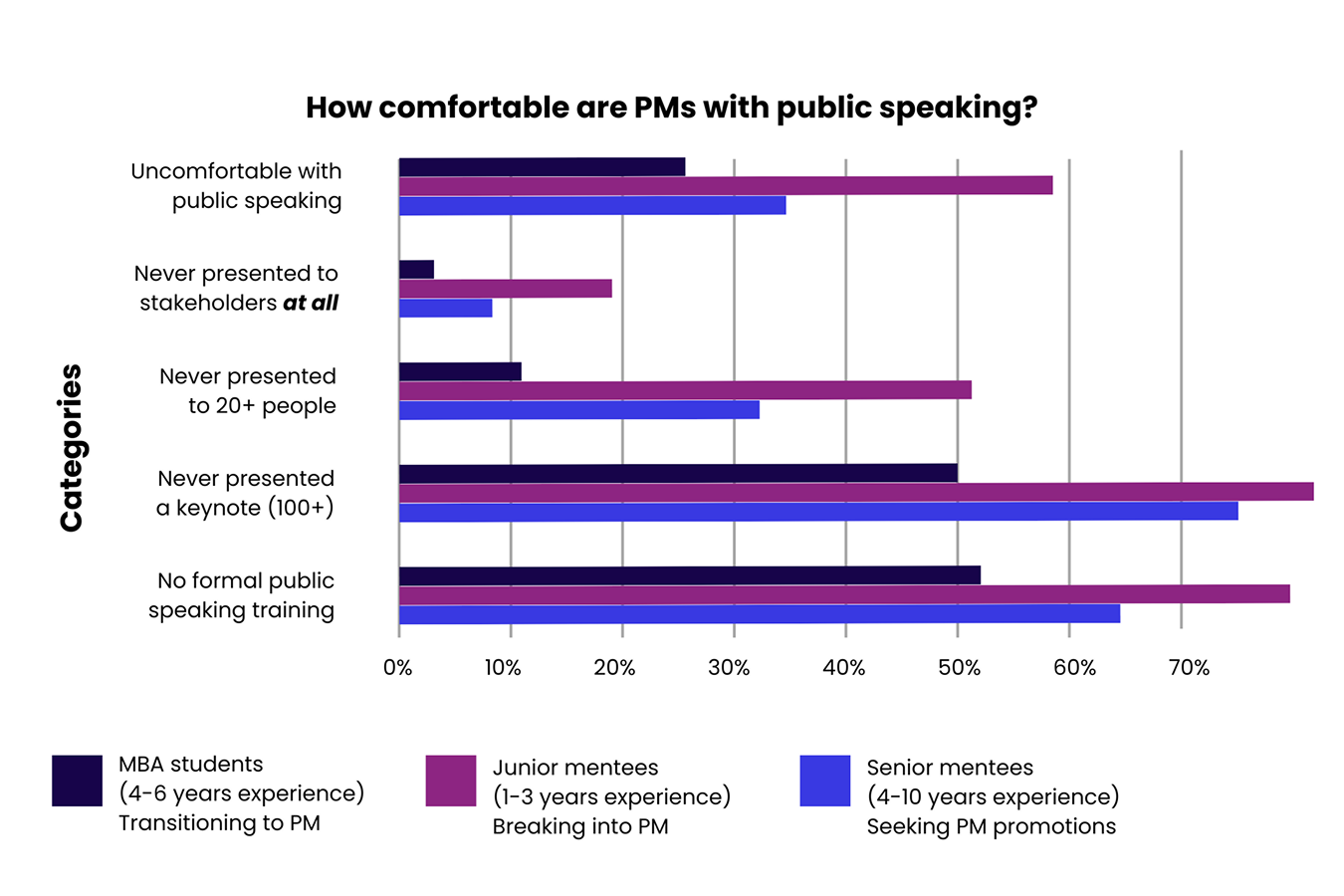In this #mtpcon London+EMEA keynote, Osaseri Guobadia, Head of Product at Songkick, describes the importance of confidence in our product management careers. She shares tools and tips to help us learn, grow, fight imposter syndrome, and embrace our roles.
Watch this video or read on for key highlights from the talk.
In brief
- Be clear — confidence is not a measure of competence
- Take time to understand and value your strengths, and learn from weaknesses
- Create an impact-focussed product management CV, one that is focused on achievements and practice your value-add stories for interviews — these need to be compelling
- A good product leader is one that can build a team of confident product people — this includes well-rounded people who are given support to develop their skills and able to learn from their peers
Confidence is not competence
Osaseri begins by explaining how, as product people it's really easy to constantly doubt your ability and your skill sets, even as you grow. Confidence, or the “perception of or belief in one’s ability,” she says, does not come easily to everyone, nor does it equate to competence.
Citing a study comparing two C-level student’s exams, where prior to the test, one predicted correctly they would get a C and the other said they’d get an A, Oserasi explains how confirmation bias tells us that the second student is more competent. While they may have overestimated their abilities, she says, it’s easier to believe they “just had an off day”.
“Many studies have shown that letting your work talk for yourself is not enough to make people think you’re really great”, she says, highlighting the importance of confidence, as “if you do not believe in yourself, other people will struggle to believe you”.
Becoming confident product managers
Osaseri explains how confident product managers understand their strengths and weaknesses, and have the emotional fortitude to take responsibility for the impact they have, whether good or bad. In addition, as a confident person you should “believe in your ability to improve and accept feedback and criticism”.
Overconfident people are comparatively unaware of their weaknesses and become less-impactful — they may under-anticipate risks and undervalue those around them — ignoring growth opportunities.
In order to be confident, Osaseri says we must challenge imposter syndrome and dismiss the “one perfect product person” archetype that we pretend exists. There's this idea, she says, that there's “the innovator; the person that's able to take any problem, work with any stakeholder, and develop the best outcome […] The reality is there’s more than one kind of PM for every problem”.
Osaseri shares some tips for growing confidence:
1. Acknowledge your strengths and your weaknesses
Take pride in your strengths and the impact you have. Also, take time to acknowledge your weaknesses without letting them detract from how you feel about the rest of your work.
2. Judge others more critically
Stop assuming the skills of your peers outweigh your own. Instead, review their results to ensure you’re not overestimating the competence of those around you.
3. Worry less
Focus on being impactful, learning and growing, and communicating that impact, caring less about those around you.
Develop a confident career path
Translating your confidence as a product person into a strong CV and successful job interview can feel challenging, Osaseri says, highlighting how many applicants spend too much time describing their former roles and responsibilities, which don’t allow them to truly stand out from the competition.
“Great CVs are focused on achievements,” Osaseri says, referencing Lazslo Bock’s formula for a good CV which recommends displaying how you “Accomplished [X] as measured by [Y] by doing [Z]”. There’s no perfect CV, Osaseri reminds us, but recommends thinking through every single item in your CV, considering whether it gives the hiring manager any useful information around why you can be impactful on a team. "If it doesn't, then it probably doesn't need to be there”.
In an interview situation your confidence will come when you “practice your stories, and practice making sure they're really compelling […] convince them that the skills that they need you have”. And show your workings and explain “what's gone wrong in a previous role, how you've adjusted and learned from that, and show that you actually have built confidence off of that situation”.
Building a team of confident product managers
For product leaders, building a team of confident product managers is critical to success. Osaseri recommends the following:
- Hiring difference: “Try not to mould the product team in the exact image of yourself” and instead create rounded teams, focussing on growth opportunities and building a supportive environment “building confidence in different areas along the way”.
- Giving praise: Understand the value of different skills, and help your team develop them, “especially when their strengths are different from yours, because that is when it's most difficult to do so”.
- Spreading impact: Make sure your product managers are learning from one another and spread across the business. You should help them understand and learn how they can utilise skills and address weaknesses, and be able to best-spread your team while preventing siloed skills.
Osaseri ends by reminding us to acknowledge and challenge the presence of biases, whether they’re our own, those of product leaders’, or hiring managers’ in order to build the best teams and grow. “It's not easy” she says, but important “for the sake of building more diverse teams”.
More product management career advice
Throughout the Mind the Product site you’ll find content to support your product management career journey whatever your level or goals, and if your next step is to find the right product job, you’ll likely find that too. Browse our Product Management Career Guide for a range of help and advice we think you'll find useful.






